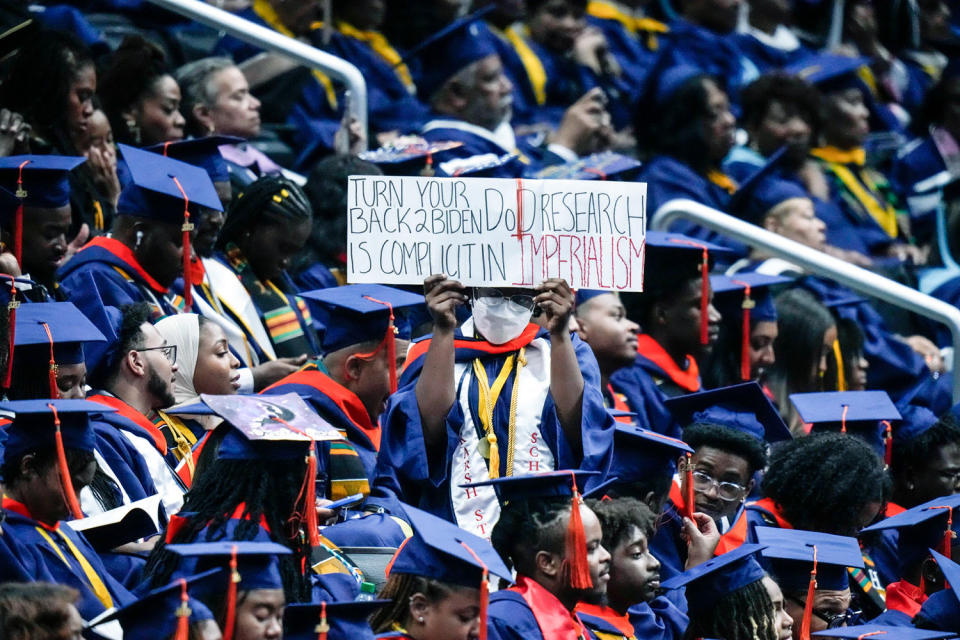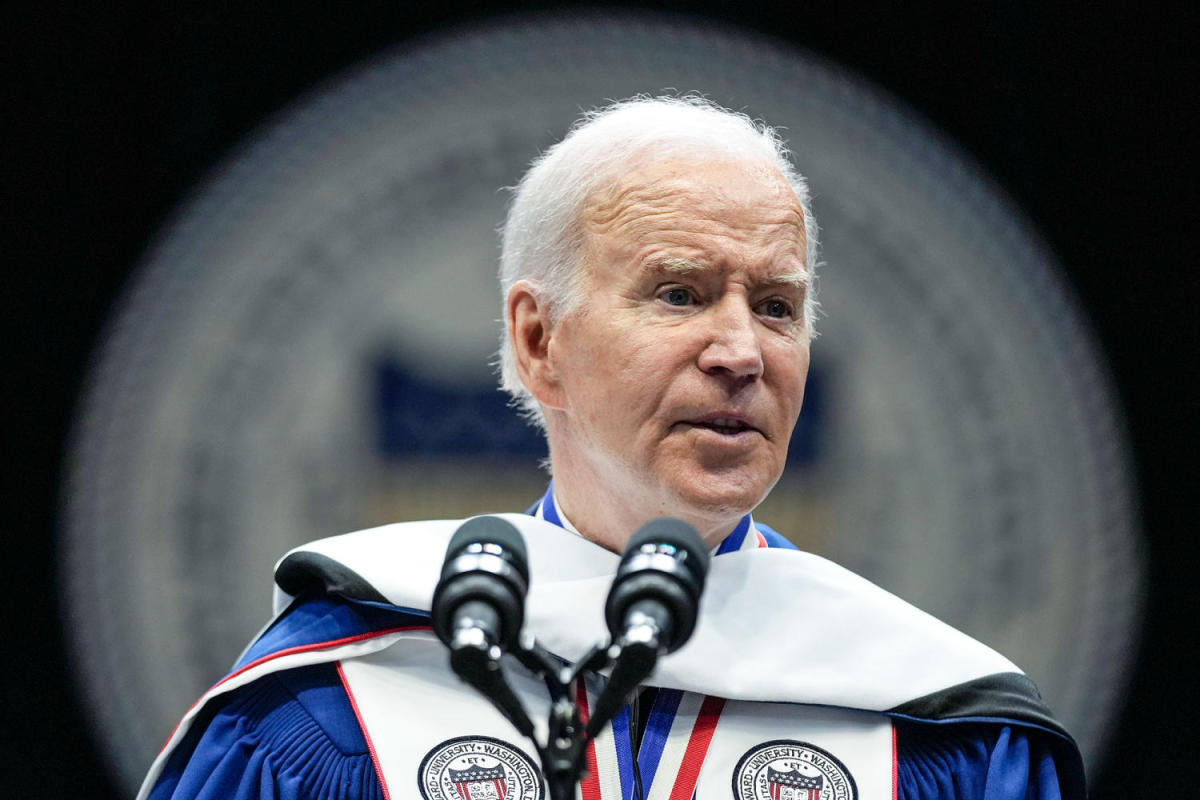WASHINGTON — Amid growing protests on college campuses by pro-Palestinian demonstrators, the White House is planning for President Joe Biden and Vice President Kamala Harris to have a minimal presence for a traditional rite of spring: delivering commencement addresses.
Biden is scheduled to speak at Morehouse College and the U.S. Military Academy at West Point in May, while Harris is only slated to give a graduation speech at the Air Force Academy. First lady Jill Biden, who teaches at a community college, is expected to deliver a commencement address, though no school has been named.
Two White House officials noted that the number of speeches for Biden and Harris is similar to the two previous years. By comparison, when then-President Barack Obama was seeking re-election in 2012, he delivered addresses at the Air Force Academy, Barnard College and Joplin High School. That same year, then-Vice President Biden spoke at West Point and high schools in the battleground states of Virginia and Florida.
Another White House official declined to preview how Biden might address the campus unrest. White House press secretary Karine Jean-Pierre told reporters this week that Biden always views these addresses “as a special time to deliver a message — an encouraging message, a message that’s hopefully uplifting to the graduates and their families.”
“He is going to do his best to meet that moment as it relates to what’s going on, the pain that communities are feeling,” she said.
Biden campaign officials say that despite the media focus on campus protests, public polling and their own research show that young voters are more concerned with other issues. A new Harvard University poll found that inflation and health care topped the list of issues most important to voters ages 18-29. Gun violence, protecting democracy, climate change and women’s reproductive rights also were higher than the war in Gaza.
But John Della Volpe, director of polling at the Harvard Kennedy School Institute of Politics, said polls and other research he’s conducted underscore the challenges Biden faces in this environment, as well as potential opportunity for him to shore up support by addressing concerns about Gaza head-on in a setting like a commencement ceremony, where students but also their parents, faculty and administrators are gathered together.
“That’s an important opportunity to try to bridge these divides, perhaps like only Biden can do. Because there are divides on this issue,” he said.
While the situation in Gaza may not be high on the list of topics identified by young voters as priorities, Della Volpe compared it to an issue like climate change where if a candidate doesn’t share their view, voters won’t engage with them on other issues.
“One of the first things that a young person tells me is that they don’t feel understood,” Della Volpe said. “There needs to be a recognition that we’re working seriously toward a permanent cease-fire. There needs to be recognition that we’re moving toward a two-state solution. There needs to be recognition that we do everything humanly possible to free the hostages and give people dignity.”

For months, the Biden campaign has been “obsessed” with finding new and innovative ways to motivate younger voters, according to a senior official. The campaign notes that it launched a young voter program earlier than past presidential campaigns and has already begun deploying staff to start organizing a presence at colleges in targeted states.
Eve Levenson, the Biden campaign’s national youth engagement coordinator, said the physical outreach on campuses is just one part of the strategy for reaching young voters. The campaign is putting a heavy emphasis on targeting college students online through its digital program and paid advertising on major social media apps. She also said there is a major emphasis on reaching young voters who aren’t enrolled in college, both through an organizing program and by having a presence at major public gatherings like music festivals and sporting events.
The campaign next week will launch a major effort targeting young voters on abortion rights timed to the end of the school year, Levenson said.
“We know from the conversations we have that young voters are planning to vote, and voters are planning to vote for us,” she said. “I think that there are always going to be things that not all people agree with us on. And it’s our job to make it clear what the contrast is, what the stakes of this election are. And to remind people of that.”
Last fall, Harris conducted what the White House called a “Fight for Our Freedoms” tour of colleges, where she visited nine different campuses and spoke to a combined 15,000 students. Biden has held some recent events at smaller colleges, with small and carefully vetted audiences. Large-scale campaign-style rallies on or near campuses have been a staple of general election campaigns, especially for Democratic candidates, but the Biden campaign has been focusing on more intimate gatherings that can be filmed and distributed by its digital team.
Rep. Ro Khanna, D-Calif., visited multiple Wisconsin college campuses this week as a member of the Biden campaign’s national advisory board. He said he found, as the Harvard poll showed, that inflation and health care were top concerns among students, but that the situation in Gaza was often a subject of respectful debate.
“Gaza is a challenging issue. And we can’t just wish it away,” he said in an interview. “It would be wrong to think that’s not impacting organizers and activists who are engaged in helping get support for the president.”
He also said Biden should not be reluctant to address the issue directly with young voters.
“It’s not the only issue by any means. It’s not even the No. 1 issue. But it’s in the conversation,” he said. “That kind of engagement shows students that they matter, that their voices are being heard.”
This article was originally published on NBCNews.com
